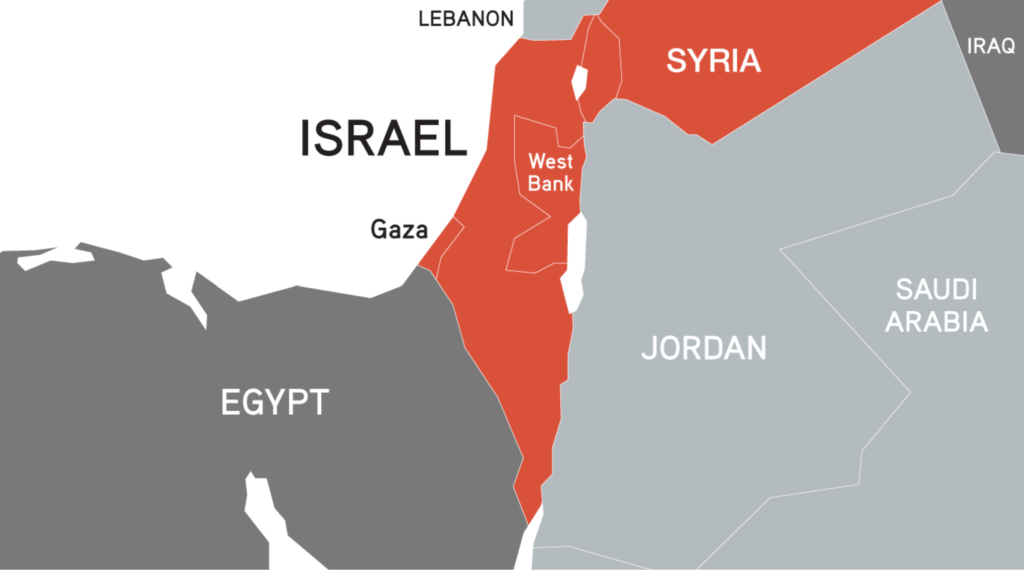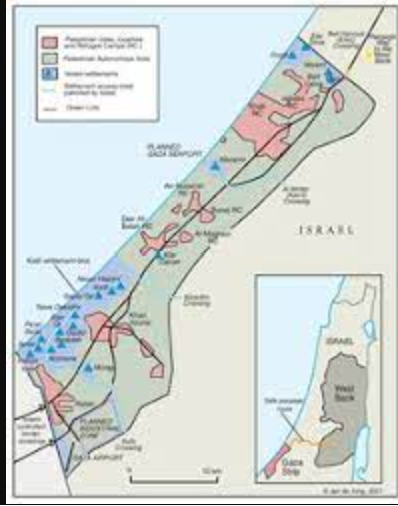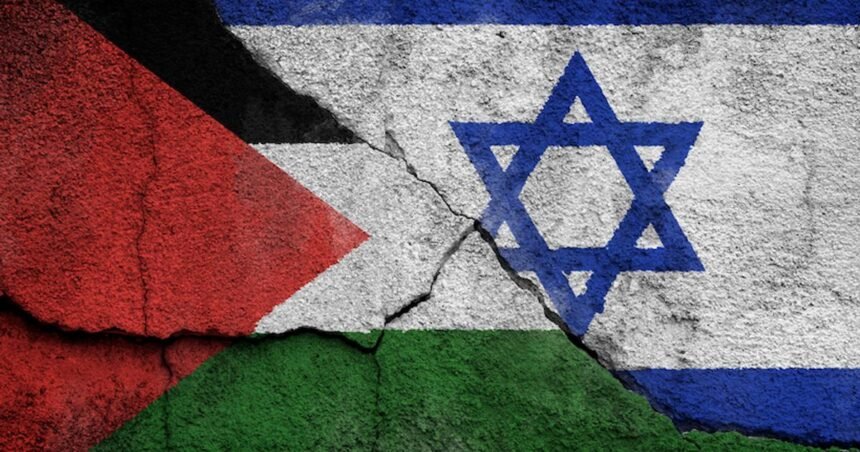Introduction
The history of the relations between Israel, Gaza, and Palestine is a complex and deeply intertwined narrative that spans many decades. It is marked by conflicts, territorial disputes, and international diplomacy. This article provides an overview of the historical background and key events that have shaped these relations.
Historical Background: Israel, Gaza, and Palestine

The modern history of Israel, Gaza, and Palestine is rooted in a series of historical events:
- Mandate Period (1920-1948): After World War I, the League of Nations granted Britain the mandate to govern Palestine. During this time, Jewish immigration to Palestine increased significantly, leading to tensions between Jewish and Arab communities.
- 1947 UN Partition Plan: In 1947, the United Nations proposed a partition plan that aimed to create separate Jewish and Arab states in Palestine, with Jerusalem under international administration. The plan was accepted by the Jewish leadership but rejected by Arab leaders, leading to the Arab-Israeli War in 1948.
- Israeli Declaration of Independence (1948): In May 1948, David Ben-Gurion, Israel’s first Prime Minister, declared the establishment of the State of Israel. This declaration was followed by a military conflict with neighboring Arab states.
- Gaza Strip: After the 1948 war, Egypt administered the Gaza Strip, while Jordan controlled the West Bank. The status of these territories remained in dispute.
- Six-Day War (1967): In 1967, Israel waged a brief but decisive war against Egypt, Jordan, and Syria, capturing the Gaza Strip, West Bank, and East Jerusalem, among other territories.
The Palestinian Liberation Movement
The Palestinian Liberation Organization (PLO) was founded in 1964 and became the leading voice for Palestinian self-determination. The PLO, led by Yasser Arafat, was recognized as the legitimate representative of the Palestinian people by the Arab world and many other countries.
Gaza’s Complicated Status

The Gaza Strip, a narrow piece of land on the Mediterranean coast, has seen significant shifts in governance and control:
- Israeli Occupation (1967-2005): After the Six-Day War, Israel occupied the Gaza Strip, along with the West Bank and East Jerusalem.
- Disengagement Plan (2005): In 2005, Israel unilaterally withdrew from the Gaza Strip, dismantling settlements and military installations.
- Hamas Takes Control (2007): In 2007, Hamas, an Islamist Palestinian group, seized control of Gaza after a violent conflict with Fatah, a rival Palestinian faction. This division between Gaza and the West Bank persists today.
ALSO READ :Gaza :-How Many Days Of Water, Food And Power Are Still Available?
Challenges to Peace
Efforts to resolve the Israeli-Palestinian conflict and address the status of Gaza have faced numerous challenges:
- Peace Accords: Various peace agreements have been proposed, such as the Oslo Accords and the Camp David Accords, but a comprehensive and lasting peace has remained elusive.
- Violence and Conflict: Repeated clashes, conflicts, and military operations have resulted in the loss of lives and infrastructure in the region.
- Settlements: The construction of Israeli settlements in the West Bank and East Jerusalem remains a contentious issue.
- Hamas-Fatah Rivalry: The split between Hamas in Gaza and Fatah in the West Bank has hindered Palestinian unity and negotiations with Israel.
Recent Developments and Challenges

- Gaza-Israel Conflicts: Over the years, Gaza has witnessed multiple conflicts between Hamas, which governs the territory, and Israel. These conflicts have resulted in significant casualties and destruction. While ceasefire agreements have been brokered at times, the underlying issues remain unresolved.
- Peace Initiatives: International efforts to mediate and negotiate a peaceful resolution to the Israeli-Palestinian conflict have included initiatives by the United Nations, the United States, the European Union, and others. These efforts have often encountered resistance, including the rejection of certain proposals by one or both parties.
- Recognition and Diplomacy: The question of recognition of a Palestinian state has been a contentious issue. Some countries have recognized Palestine as a sovereign state, while others, including Israel and the United States, have not. These varying positions complicate efforts to reach a comprehensive peace agreement.
- Humanitarian Challenges: The people of Gaza and the West Bank continue to face humanitarian challenges, including access to basic services, economic opportunities, and freedom of movement. Humanitarian organizations play a crucial role in providing aid and support to the population.
- Jerusalem: The status of Jerusalem remains a central point of contention. Both Israelis and Palestinians claim the city as their capital. The relocation of the U.S. embassy to Jerusalem in 2018 sparked controversy and protests.
Future Prospects

The path toward a peaceful resolution remains uncertain, but there are some potential avenues for progress:
- Two-State Solution: The concept of a two-state solution, where Israel and Palestine coexist as independent states, has been a longstanding goal. Achieving a mutually acceptable framework for this solution remains a priority for many international actors.
- Direct Negotiations: Successful direct negotiations between Israeli and Palestinian leaders are essential for resolving outstanding issues. Confidence-building measures and compromises will be crucial to reaching a comprehensive peace agreement.
- International Support: Continued support and involvement from the international community, including neighboring Arab states, can help facilitate dialogue and negotiations. International organizations can also play a role in addressing humanitarian and development challenges.
- Civil Society Engagement: Civil society, including grassroots movements and people-to-people initiatives, can contribute to building trust and understanding between Israelis and Palestinians. These efforts can promote peace and reconciliation at the community level.
- Youth and Education: Investing in education, especially in curricula that promote tolerance, coexistence, and understanding, can have a long-term impact on future generations and their attitudes toward peace.
In conclusion, the history of relations between Israel, Gaza, and Palestine is a complex and deeply rooted narrative marked by conflict and uncertainty. Achieving a just and lasting peace in the region remains a significant global challenge. While there have been moments of progress and diplomatic initiatives, key issues such as borders, refugees, Jerusalem, and security arrangements continue to be contentious. The future path to resolution is uncertain, but the importance of finding a peaceful solution remains paramount for the well-being of the people in the region and for global stability.
ALSO READ: Gaza Hospital Bombing:- European Leaders Denounce That Killed Civilians




































